In the midst of the largest pandemic that the world has seen in this lifetime, is the 45th anniversary of the Southeast Asian American experience – the largest refugee diaspora that the world had ever seen with refugees fleeing for safety starting in 1975 from Viet Nam, Cambodia, and Laos. This anniversary marks one of the most resilient American narratives known in history — the transformations that this refugee community has made in America to redefine who and what the country is today.
Reflecting on this refugee history calls to mind five lessons from the Southeast Asian American experience and the path forward during this COVID-19 outbreak.
Lesson 1: Family is everything
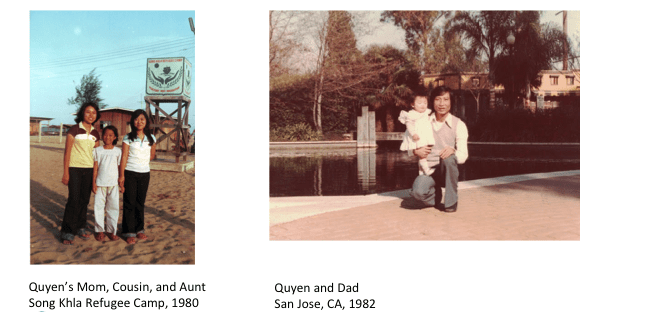
During the wars in Vietnam, Cambodia, and Laos and after, family meant everything and no sacrifice was too large for your family, including sacrificing your own life for their freedom. This love for family led to my aunt and uncle fleeing Viet Nam in the late 1980s with their four children and nephew. It was this love that led my grandparents to allow my mom and my dad to leave as a 16-year-old and 27-year-old to be separated from their family for freedom. Today, protecting our families at SEARAC is the foundation for how we are moving our work forward. From instituting remote work to avoid contact, to reduced and flexible schedules to support parents without childcare, and increased health and wellness funds, our number one is priority to make sure our team and their families are supported.
Lesson 2: Resilience defined
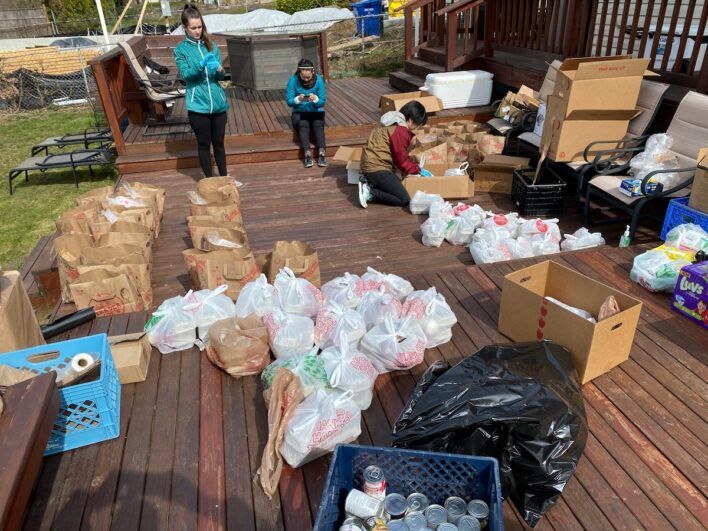
As a community that has survived war, famine, genocide, and displacement, we are stronger today than we were 45 years ago. This is more true than ever as we look at how Southeast Asian American communities and leaders have responded during this time – from organizations like Kandelia that have organized food drives for families who can’t afford food and fundraisers to provide cash assistance to families who can’t pay rent, or to those like BPSOS Houston that are continuing their census outreach and education work as they deliver food bags to families in need. During the most harrowing of times, Southeast Asian American communities have demonstrated the power of resilience to overcome all odds.
Lesson 3: Repair is long-term work
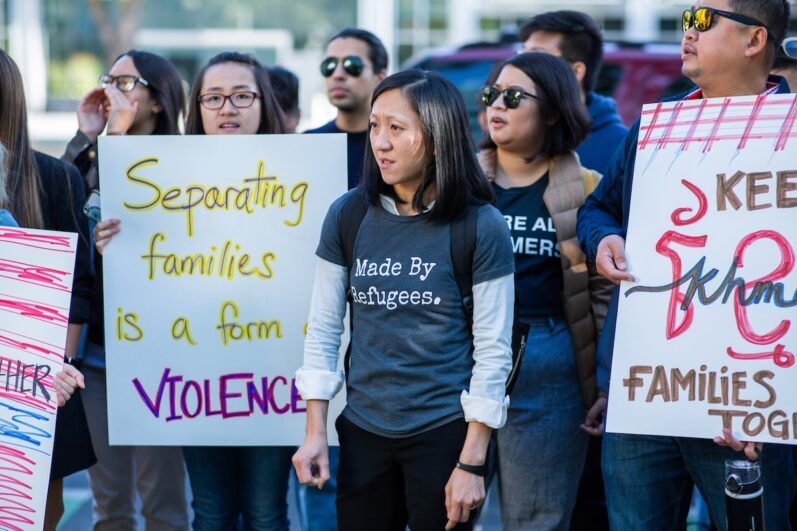
As the largest community of refugees ever to be resettled in America, our communities continued struggles today are a testament to one of the biggest flaws of our current refugee policy. The policies assume that support can be provided on a 3-6 month basis, wherein individuals who have arrived to the United States with nothing but the clothes on their back can learn English to find a full-time living-wage job. This broken refugee system fails to address the reality of what our communities have experienced: generational poverty that has been perpetuated by both shortsighted refugee policies and fragmented social policies being revealed during this pandemic. We know that the road to repair the harms that have been unveiled through COVID19 can only be done with a long-term lens to fix the broken policies that have led our communities to where we are today – with students whose education systems were not equally equipped for the digital demands of today’s learning needs, with families who have been laid-off from low-wage service jobs that didn’t pay into unemployment systems, with elders who are now struggling to access the translation services they need from health systems unable to meet the linguistic diversity of a changing America, and with the invisibility that our communities face today being lumped under the “Asian” data category distorting the reality of how our communities are actually being disparately impacted by COVID19.
This is why SEARAC’s advocacy work to call for national policy changes to fight for our community’s rights to be seen, to heal, and to family are more important than ever. That’s also why now more than ever, we need your help to educate more congressional leaders to understand the needs of our community, and for them to stand-up for the long-term solutions we need. You can do this by tweeting at your congressional member to support our national resolution, sponsored by Rep. Alan Lowenthal, that honors the contributions of our community members during this 45th year anniversary while also urging the president to end the deportation of Southeast Asian refugees and advance equitable policies for SEAA communities.
Lesson 4: Trust in your ability to heal.
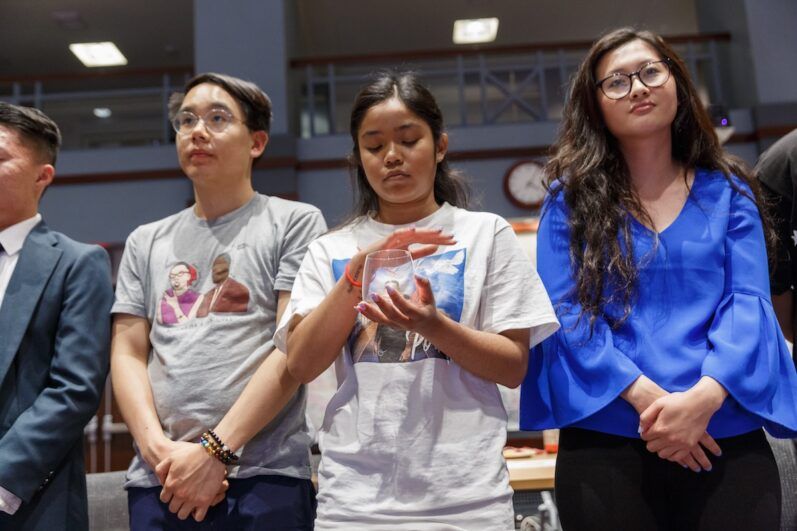
This lesson is borrowed and modified by Kevin Fong’s lessons for healing communities from within to trust your body, and trust that it has everything it needs to heal from within. As survivors of war, genocide, famine, and displacement, Southeast Asian American communities know that for us, healing is a journey. But as we look across the country, we look to practices like narrative therapy that are unearthing our stories and leading to healing deep wounds from reclaiming our known truths, our stories, and trusting ourselves to heal. During this time of incredible certainty, the path forward includes trusting in your knowledge, your wisdom, and your instincts that you have honed through a lifetime of experiences to answer the toughest questions of the day that my dear friend Lian Cheun from Khmer Girls in Action asks: what transformative decisions can you make for yourself, your family, and your community during this time?
Lesson 5: Love and life continue during the darkest of times.
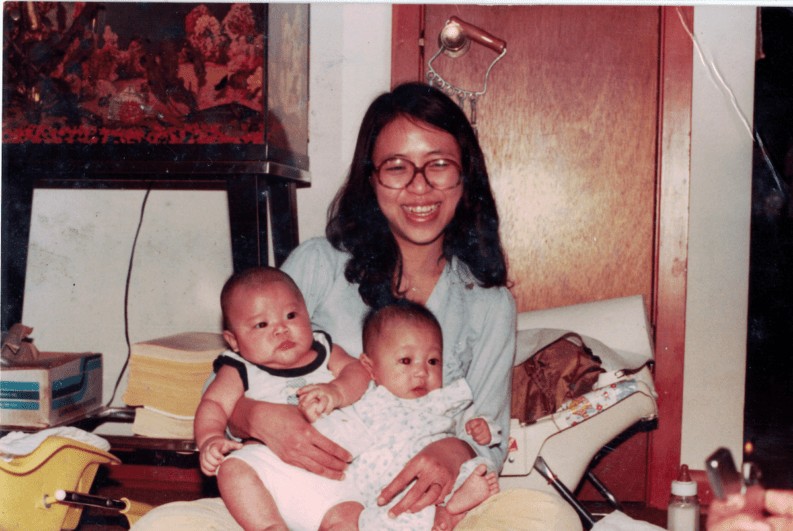
In the midst of the refugee experience, my mom fell in love with my dad in the refugee camps. She recalls seeing him hold his niece who was thrashing around in pain with such care and feeling like she had never seen a man who was so tender, and so loving.
In the midst of resettling to the United States with nothing but the clothes on their back, my parents got married and had me.
In the midst of the COVID-19 pandemic, my baby niece Emma was born. And while I can’t hold her, I am already in love. And I think of my mom who had me without any parents, or any family around, and the hope she held in her heart for her family to one day hold me.
During this pandemic, the reminder of love and life is more important than ever. At SEARAC, it is this love that brings us to work each day to fight for justice and equity, and to continue our long legacy of refugee resilience to choose love, to choose life, against all odds. So that 45 years from now, when we are commemorating our community’s 90th anniversary, we’ll look back at the strides and decisions we made during this anniversary to define who we are today out of love for our communities.
As we close out Asian Pacific American Heritage Month, we call on all communities to remember the legacies and wisdom that their communities have also contributed to redefine America.
Quyen Dinh is SEARAC’s Executive Director and can be reached at quyen@searac.org.
